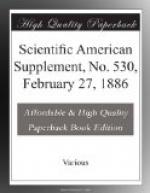In the matter of expert service in the courts I am disposed to speak guardedly. I see no reason why an engineer should not willingly go upon the witness stand to give expert testimony if he has made proper preparation and has an honest conviction that his testimony can be given with a conscientious regard for the obligations of his oath as a witness. It is his duty and his privilege to defend his opinions, for the man without opinions which he is prepared to defend is worthless as a witness and cannot properly be called an expert. But the conscientious engineer has no right to appear as a partisan of anything except what he believes to be the truth. If he finds himself parrying the questions of the cross-examination with a view to concealing the truth, if he realizes that he is a partisan of the side which retains him, and feels a temptation to earn his fee by falsehood, concealment, or evasion, he can be sure that he is in a position in which no man of honor has a right to be. The abuses of expert testimony in civil and criminal suits are many and grave; its uses are perhaps exaggerated, and the witness stand is not an inviting field for the young engineer seeking a satisfactory career.
How far an engineer can properly use for his own advantage information gained in the discharge of duties of a confidential nature, is a question at once delicate and difficult. He cannot help knowing what he has learned, and his knowledge is his capital. He must be governed in this matter by the considerations which influence men of honor in the ordinary relations of life. Stock and real estate operations, on confidential information which belongs to one’s principals, are usually in violation of the simplest rules of professional honor. The manager who advises his brokers by telegraph and his principals by mail cannot, I think, claim to have a very delicate sense of right and wrong. He can judge his own conduct by the standard he would apply in judging like infidelity on the part of those employed by him.
In professional criticism of professional work, it is easy to fall into ways which are wrong, morally and professionally. Criticism which is designed merely to advertise the critic serves no good purpose, and savors of charlatanry or something worse. Only a small proportion of the current critical literature of engineering serves any good or useful purpose, since it has no other or higher object than to help the critics to climb into notoriety on the shoulders of the older and wiser men with whom they are brought into competition. I regard as unprofessional every effort to discredit honest and intelligent work, and every form of disguised advertising designed to give an engineer a greater prominence than he has earned by successful and creditable work, or is entitled to claim by virtue of fitness for more than average professional achievements.




